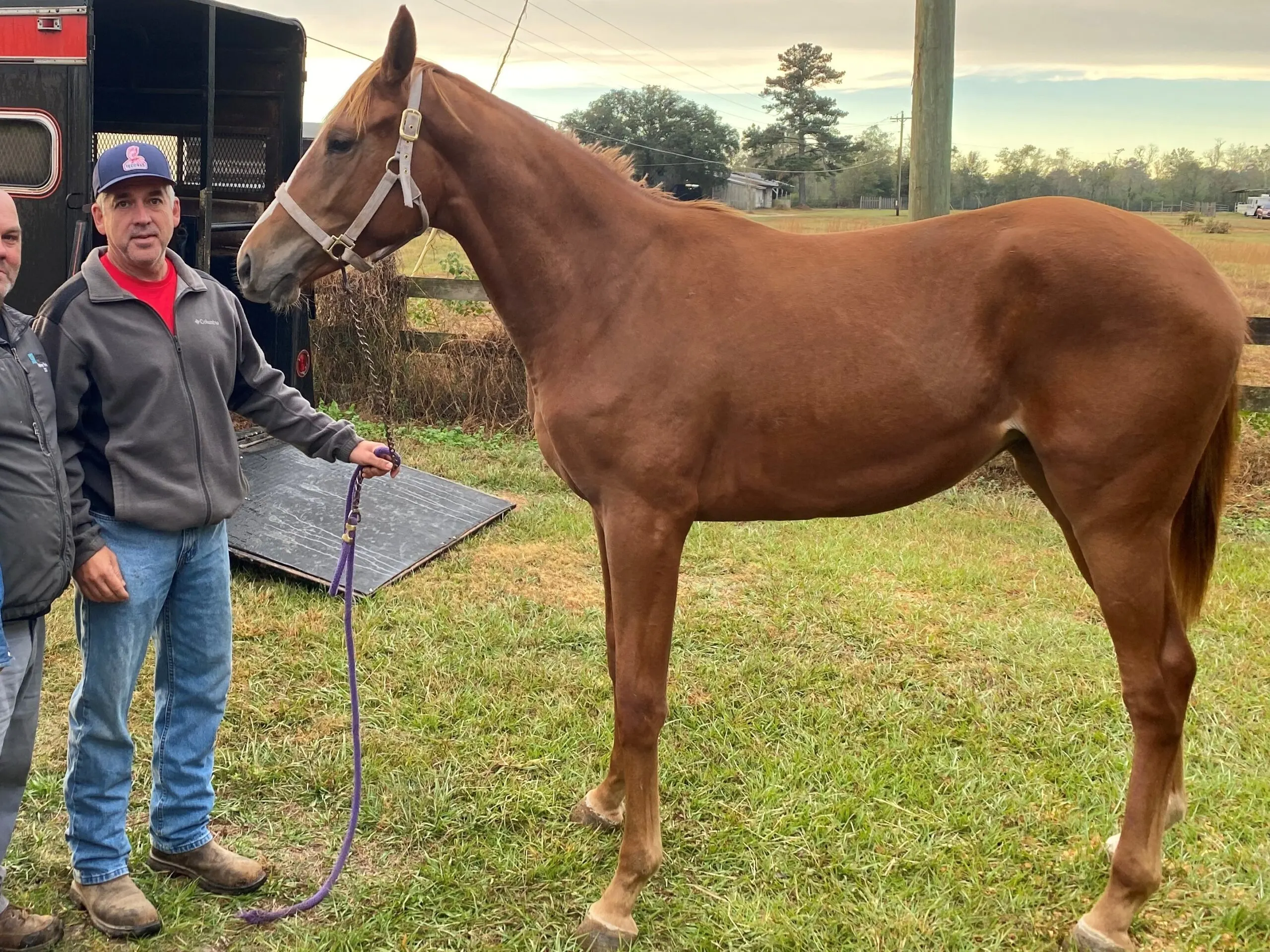Last updated: April 15, 2024
Any links on this page that lead to products on Amazon are affiliate links and I earn a commission if you make a purchase. Thanks in advance – I really appreciate it!
Did you know that horses typically live between 25 to 30 years? However, this can vary widely based on various factors from genetics to the care they receive. If you own a horse or are considering getting one, it’s crucial to understand these factors to maximize their lifespan.
In this article, we’ll explore what affects a horse’s lifespan and provide practical tips on how you can help ensure your horse lives a long, healthy life. Dive in with us to discover how to best care for your horse.
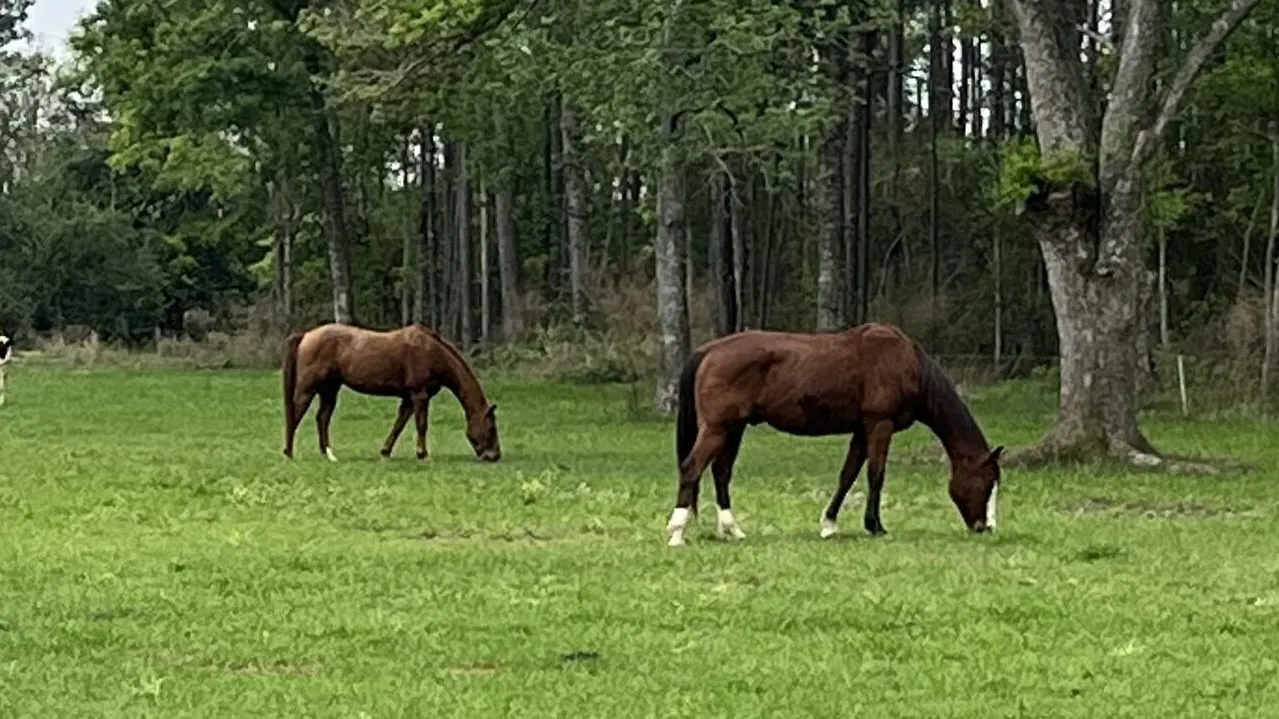
Understanding Horse Lifespan: Key Factors
Not all horses have the same lifespan, and there are reasons why. Several key factors can influence how long a horse lives. Here’s a quick overview:
- Genetics: Different breeds have different lifespans. For example, smaller breeds, like Arabians, often live longer than larger breeds, such as draft horses.
- Care: Quality care can significantly extend a horse’s life. This includes regular veterinary visits, proper nutrition, and routine dental care.
- Environment: A horse’s environment should be safe, clean, and stimulating. Good living conditions reduce stress and prevent disease, which can affect lifespan.
- Diet and Nutrition: A balanced diet tailored to a horse’s specific needs helps maintain its health. Both overfeeding and underfeeding can lead to health problems that may shorten a horse’s life.
- Exercise and Activity: Regular exercise is crucial for keeping a horse healthy, but it is also important to balance activity levels according to age and health status.
Having a good grasp of these factors can help your horse live a longer, healthier life. Let’s explore these aspects further to learn how best to care for your horse.

How Genetics Affect a Horse’s Lifespan
A horse’s lifespan varies greatly, and genetics play a crucial role. Here’s a simplified look at how different breeds and inherited health traits can influence how long horses live:
- Breed Differences:
- Arabians typically live into their 30s due to strong genes that help them resist diseases.
- Draft Horses like Clydesdales often have shorter lifespans, around 18 to 25 years, because their large size can lead to health issues.
- Ponies, such as Shetlands, can live into their mid-30s, benefiting from fewer health problems related to their smaller size.
- Thoroughbreds usually live about 25 to 28 years, as their breeding for racing can affect their overall health.
- General Health Traits:
- Disease Resistance: Some horses inherit strong defenses against certain diseases, helping them live longer.
- Inherited Conditions: Other horses might inherit conditions that can shorten their lives, like specific muscle disorders in Quarter Horses.
- Breeding Choices: How horses are bred also affects their lifespan. Selective breeding for traits like better heart health can increase life expectancy.
Understanding these genetic factors can help horse owners and breeders take better care of their horses and make smarter breeding choices.

Nutrition for Longevity
Good nutrition is key to a long and healthy life for horses. Here’s how proper feeding can make a big difference:
- Balanced Diet: Horses need a mix of hay, grains, and sometimes supplements to get all the required nutrients. It’s important to match their food to their age, size, and activity level.
- Avoid Overfeeding: Too much food can lead to obesity, which strains a horse’s heart and joints. Keeping your horse at a healthy weight can help extend its life.
- Special Needs for Older Horses: As horses age, their digestive systems become less efficient. Feeding senior horses easily digestible foods and supplements can help them get the nutrients they need without overloading their system.
- Regular Check-ups: Regular visits from a veterinarian can help ensure your horse’s diet meets its health needs, adjusting as necessary to prevent nutritional deficiencies.
Focus on these aspects of nutrition to help your horse live longer and have a better quality of life.

Exercise and Physical Care
Regular exercise is essential for keeping horses healthy and extending their lifespan. Here’s how proper physical care contributes to their well-being:
- Routine Exercise: Horses need to move around daily. Regular activities like walking, trotting, and occasional sprinting help maintain muscle tone, improve circulation, and keep their joints healthy.
- Appropriate Workloads: It’s important to balance the amount of exercise a horse gets. Too little can lead to weight gain and health issues, while too much can cause injuries. Tailoring the exercise to the horse’s age, health, and condition is key.
- Rest and Recovery: Like humans, horses need time to rest and recover, especially after intense activities or training sessions. Ensure they have a comfortable place to rest and recover.
- Regular Health Checks: Alongside exercise, regular check-ups from a vet can help catch any health issues early. This includes monitoring their hooves and legs, which are crucial for mobility.
By focusing on these areas of exercise and physical care, you can help ensure your horse stays fit and healthy throughout its life.

Mental Wellbeing and Social Needs
A horse’s mental health is just as important as its physical health when it comes to living long. Here’s how you can support the mental wellbeing and social needs of your horse:
- Social Interaction: Horses are social animals that thrive on interaction with other horses. Allowing them to graze and play with peers can prevent stress and depression, which can both negatively impact their health.
- Stimulating Environment: Keeping your horse in an environment that stimulates their senses can improve their mental health. This includes having toys in their stalls, varying their routine, and providing opportunities for exploration.
- Regular Human Contact: Regular, gentle interaction with humans can also help keep horses mentally healthy. Grooming, petting, and training strengthen bonds and provide mental stimulation.
- Observation for Changes: Pay close attention to any changes in your horse’s behavior, as these can be signs of mental distress. Early detection and intervention can prevent long-term issues.
Addressing these mental and social needs can help your horse live a happier, more fulfilled life, contributing to a long life.
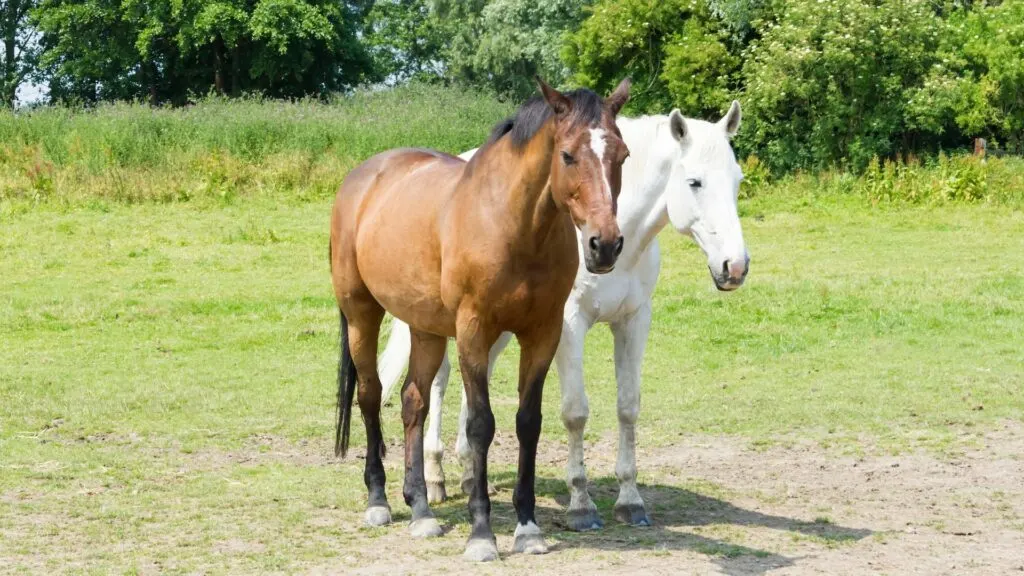
Technology and Innovations in Horse Care
New technologies are changing how we care for horses, making it easier to keep them healthy and happy. Here are some simple tools and services that can help:
- Health Monitors: Devices like GPS trackers and fitness monitors can be worn by horses to check their heart rate and how much they move each day. This helps you make sure they are getting enough exercise and staying healthy.
- Automated Feeders: These feeders give your horse the right amount of food at the right times, helping prevent overfeeding and keeping your horse at a healthy weight.
- Stable Sensors: Sensors can monitor your horse’s stable temperature, humidity, and air quality. This makes sure your horse lives in a safe and comfortable environment.
- Horse Care Apps: There are apps available that help you manage your horse’s health care schedule, including vet visits and feeding times. They keep all your horse’s health information in one place.
- Telemedicine: This service allows you to talk to a vet over the phone or via video call. It’s great for quick check-ups or getting advice without stressing your horse with a trip to the vet.
These tools can help you take better care of your horse, ensuring they lead a long and healthy life.

Horses Who Defied the Odds and Lived Long Lives
Some horses have remarkable stories of longevity that surpass the usual lifespan expectations. Here are a few notable examples:
- Old Billy – 62 Years Old: Known as one of the oldest horses ever, Old Billy worked as a barge horse in England. His moderate and consistent activity likely helped extend his life significantly beyond the norm.
- Sugar Puff – 56 Years Old: This Shetland-Exmoor pony thrived on a diet similar to what he would find in the wild and plenty of time outdoors. Regular care and a loving home contributed to his long life.
- Shayne – 51 Years Old: Shayne, an Irish Draught, spent his golden years in a sanctuary where he received tailored care, gentle exercise, and lots of companionship, emphasizing comfort and well-being.
- Orchid – 50 Years Old: An Arabian-Thoroughbred mix, Orchid lived to an impressive age thanks to specialized care in a sanctuary setting, including a nutrient-rich diet and a stress-free environment.
These stories highlight how proper care, a suitable environment, and genetics can combine to help horses live longer, healthier lives.
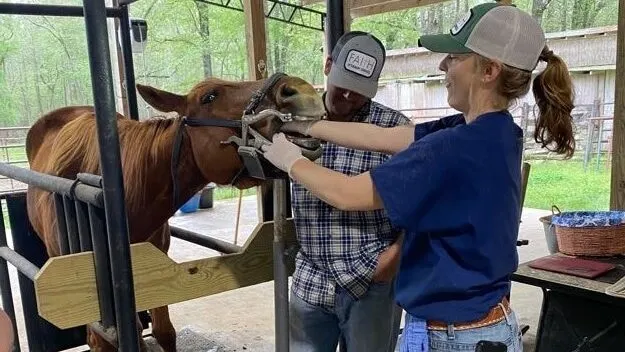
Signs of Aging in Horses
As horses get older, they show changes that can tell you they need different care. Spotting these signs early is important to keep them comfortable and healthy. Here are some simple indicators to watch for:
- Less Active: Older horses might not be as playful or energetic as they used to be.
- Weight Changes: Sudden weight loss or gain could point to health problems.
- Dental Issues: Trouble eating or weight loss can mean dental problems common in older horses.
- Coat Appearance: An aging horse’s coat might look duller or have more gray hairs.
- Stiff Joints: If your horse seems stiff or hesitant to move, it could be arthritis or other joint issues.
- Seeing and Hearing: Pay attention if your horse doesn’t react to sights and sounds like it used to; it might be losing sight or hearing.
- Mood Changes: If your horse seems more irritable or acts differently, it might be uncomfortable.
- Physical Appearance: A sagging back or less muscle along the topline are aging signs.
I keep an eye out for these signs and suggest you do as well. This will help you better care for your horse as it ages, ensuring it stays as healthy as possible.

Comparative Lifespan: Horses vs. Other Domestic Animals
Horses live longer than many domestic animals, typically ranging from 25 to 30 years. Here’s how their lifespan compares to other common pets and livestock:
- Dogs: Usually live 10-13 years, depending on the breed.
- Cats: Can live 15-20 years, especially if they stay indoors.
- Cows: Dairy and beef cows often reach 15-20 years, influenced by their care and environment.
Horse to Human Age Calculator
Wonder how old your horse would be in human years? Use our calculator to find out:
Horse to Human Age Calculator
Enter the age of the horse to find its equivalent in human years:
This tool helps provide a fun and interactive way to understand your horse’s age in human terms.

FAQs: How Long Do Horses Live?
What is the average lifespan of a horse?
The average lifespan of a horse is between 25 to 30 years, though this can vary widely depending on factors such as breed, care, and overall health. Some horses have been known to live into their 40s or even beyond.
How often should horses have veterinary check-ups?
Horses should have at least annual veterinary check-ups. However, more frequent check-ups might be necessary for older horses or those with health conditions. Regular dental checks are also crucial.
How does genetics influence a horse’s lifespan?
Genetics plays a significant role in determining a horse’s lifespan. Certain breeds, particularly smaller ones like Arabians, tend to live longer. Genetic predispositions to health conditions can also affect longevity.
What are the key elements of proper horse care?
Key elements include a balanced diet tailored to the horse’s needs, regular exercise, preventive healthcare (including regular vet check-ups, vaccinations, and dental care), and attention to mental well-being through social interaction and mental stimulation.
Can regular exercise extend a horse’s life?
Yes, regular, appropriate exercise helps keep horses fit, supports cardiovascular health, and can prevent obesity and related health issues, contributing to a longer, healthier life.
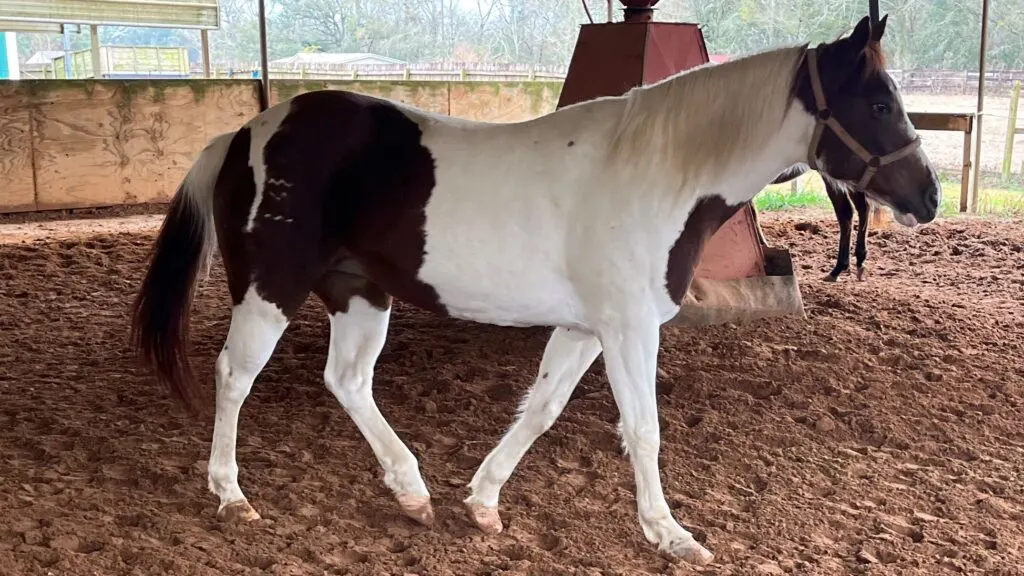
Conclusion and Next Steps
Horses can live for 25 to 30 years or more with proper care. By understanding the critical roles of genetics, nutrition, exercise, and mental health, you can significantly enhance your horse’s quality of life and possibly extend their lifespan. Here’s what you can do today to make a difference:
- Review Your Horse’s Diet: Check if it’s well-balanced and suited to their age and activity level. Unsure? Consider consulting a veterinarian or a horse nutrition expert.
- Establish a Routine: Ensure regular exercise and social interactions to keep your horse healthy and engaged.
- Embrace Technology: Adopt innovations like health monitors and automated feeders to streamline care and improve accuracy.
Take Action Now: Share this guide with fellow horse enthusiasts, subscribe for more insightful updates, or contact us directly at [email protected] for personalized advice tailored to your horse’s needs.
Get Involved and Share Your Story
Your experiences are invaluable to our community. Whether it’s a story of how you’ve managed your horse’s care or a challenge you’ve overcome, share it in the comments below or join our forum discussions. Your insights could help others make better decisions for their horses.
Further Resources
For more in-depth information on horse care and longevity, consider these resources:
- Journal of Equine Veterinary Science: Dive into scientific studies about equine health.
- The American Association of Equine Practitioners (AAEP): Explore a wealth of articles on horse health and management.
- The British Horse Society (BHS): Access detailed guides and welfare information.
- Equine Research Foundation: Learn about the latest in horse care and science.
- International Society for Equitation Science (ISES): Discover resources focused on horse well-being.
By engaging with these resources and applying what you learn, you can contribute to a longer, healthier life for your horse. Let’s work together to ensure our horses thrive at every stage of their lives.
Meet Miles Henry
An avid equestrian and seasoned racehorse owner, Miles Henry brings his extensive experience to the equine world, proudly associating with the AQHA, The Jockey Club, and various other equine organizations. Beyond the racetrack, Miles is an accomplished author, having published various books about horses, and is a recognized authority in the field, with his work cited in multiple publications.
🔗 Connect with Miles:
Twitter
Facebook
YouTube: Check out race highlights, horse care tips, and more!

